We have read many books on high performance, worked with different high-performance coaches. Brendon is one of the few who really knows what he’s talking about and has really worked with lots of high achievers. In his book he explains his HP6, which was very effective for us and many of our students too.
Before reading his book, you can go through his high-performance indicator assessment test, see your results and then track your progress after finishing the book. Also, he has created a very cool performance management tool, where we’re subscribers. It’s a great one! But don’t subscribe before reading the book.
Our chess Grandmasters' ultimate list of recommendations for players of all levels!
Peak Performance
Your chess rating is never equivalent to your knowledge. It’s equivalent to your performance.
And it’s somewhere in between when you perform worse and when you perform at your peak.
What if you always perform at your peak? Or close to your peak?
What the majority don’t realize is that often one good mindset book can have a bigger impact
on your chess than a few chess books.
Below you’ll find books that will help you with performing at your peak, staying motivated,
finding your purpose and your WHY, balance between growth and happiness, and much more…
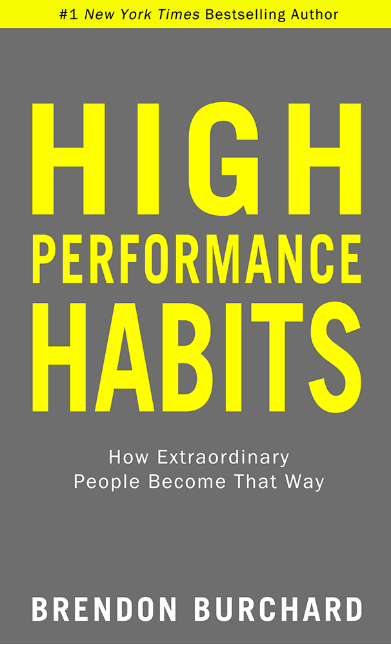
High Performance Habits by Brendon Burchard
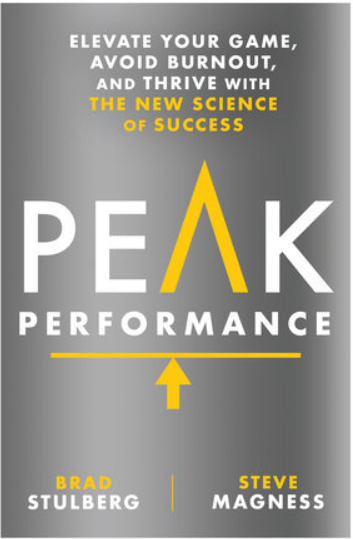
Peak Performance by Brad Stulberg and Steve Magness
Every champion speaks in their interviews on how hard they worked, how they pushed to their limits…You know their names.
What you don’t know is the names of the other 99% of triers. Who also tried to get there, worked very hard as well. But they burnt out on their way. What’s their difference? Often it comes to 1 thing: high achievers give lots of attention to how they REST and how they keep the balance! They not only train like the best, they REST like the BEST!
In this book, you’ll find lots of techniques on how to sustain peak performance, rest like the best, and avoid burnout.
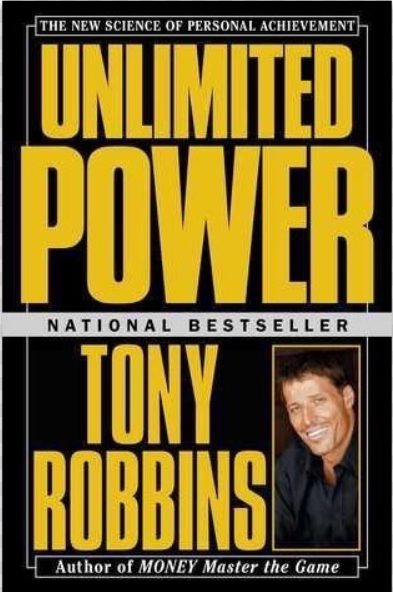
Unlimited Power by Tony Robbins
This is the absolute best thing Tony has done for the world. Here, you’ll not only find motivation and inspiration to go forward and achieve your dreams, but you’ll also learn many strong techniques based on science and neuroscience. Not surprisingly, this is one of the 1st books that many achievers, top athletes and CEOs have read. It was one of Avetik’s first books too.
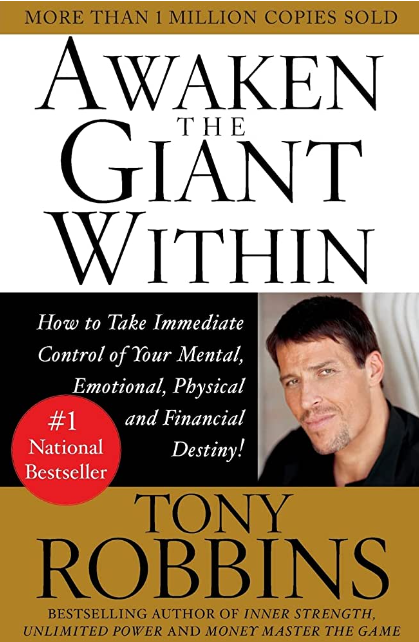
Awaken the Giant within by Tony Robbins
And this is the 2nd best thing Tony has done 🙂
If you feel you’re in the river of life, and it takes you somewhere you don’t want to end up in, this is your 2nd read after the “Unlimited Power.” It’ll help you to wake up and take control of your life.
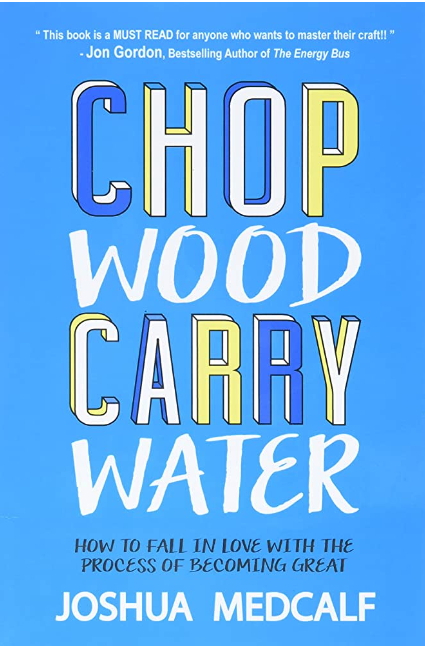
Chop Wood Carry Water by Joshua Medcalf
If you have a long-term goal, and are preparing to run a “chess marathon”, this is the first book you should start with.
You’ll learn:
- Why the process is more important than the goal
- Why you must detach yourself from results
- How to develop a growth mindset
- How to use the biggest challenges as a training ground for greatness
- Why you never want to have your identity wrapped up in what you do.
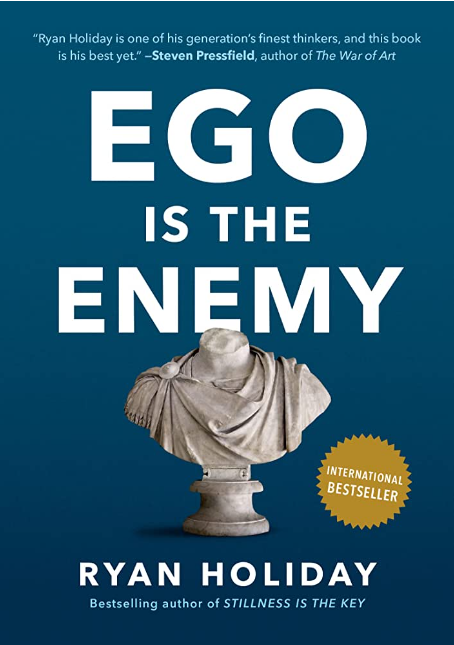
Ego is the Enemy by Ryan Holiday
The most common enemy lies within: our ego. Early in our careers, it impedes learning and the cultivation of talent. With success, it can blind us to our faults and sow future problems. In failure, it magnifies each blow and makes recovery more difficult. At every stage, ego holds us back. Even when it helps us to achieve things, in the end we fill empty, because it wasn’t our real wish. It belonged to the little worm inside us - the ego.
By learning to harness our ego, we’ll not only take failures easier, but we’ll also go forward faster and in the right direction.
Note: The first part of the book is a bit boring. Don’t close it. Jump to the section “To be or to do?”
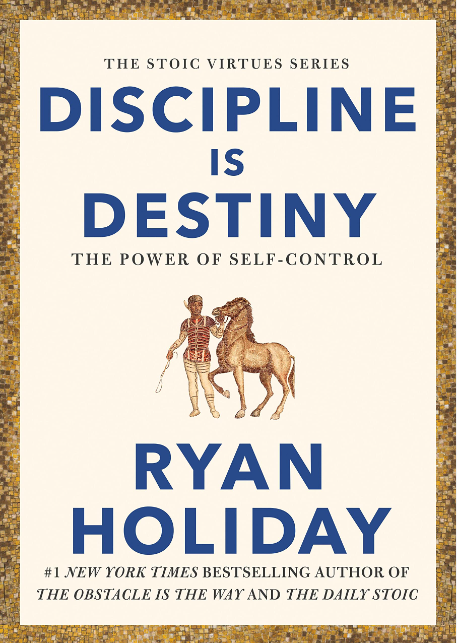
Discipline is the Destiny by Ryan Holiday
"Lack of discipline puts you in danger; it also colors who and what
you are." — Seneca
Many chess players come up with a training plan, create a system, make a decision to start the next Monday, do it for a few days and then… fail to keep the discipline. In this book, you’ll find lots of interesting and inspirational stories about different people, from Marcus Aurelius to Napoleon. And you’ll not be able to help but notice how disciplined you became.
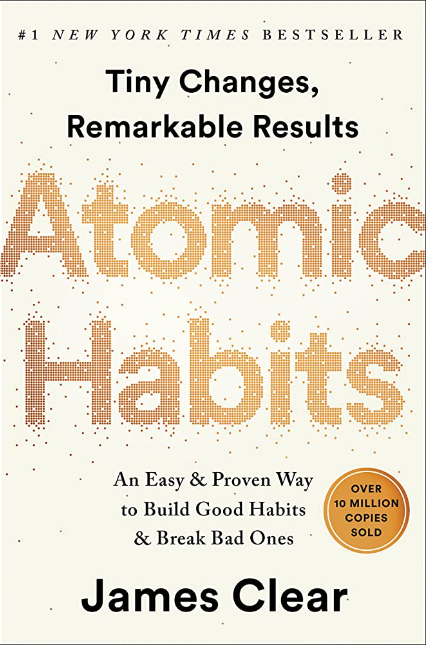
Atomic Habits by James Clear
Being disciplined, getting rid of bad habits and installing good ones — go hand in hand. Many books have been written about habits, but nothing comes close to the brilliant work James Clear has done with his book.
If you have bad chess habits, like playing bullet, or anything else in life, here is half of the solution. The other half is in your hands. Will you read it and practice what you study there?
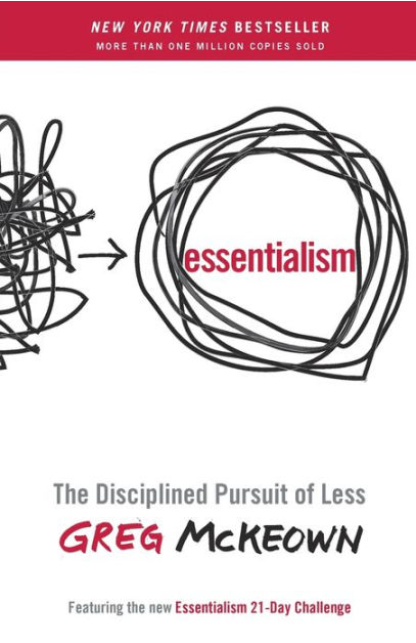
Essentialism by Greg McKeown
If you have a habit of buying lots of books and courses, jumping from one to another and never finishing them, you should pick up this book. There is so much useful stuff for your chess. But you can’t do all of them. The key is to remove all useful activities, and focus on the most effective ones ONLY! To say “NO” to many resources, and keep your “YES” to a few essential ones.
A great book by Greg Mckeown.
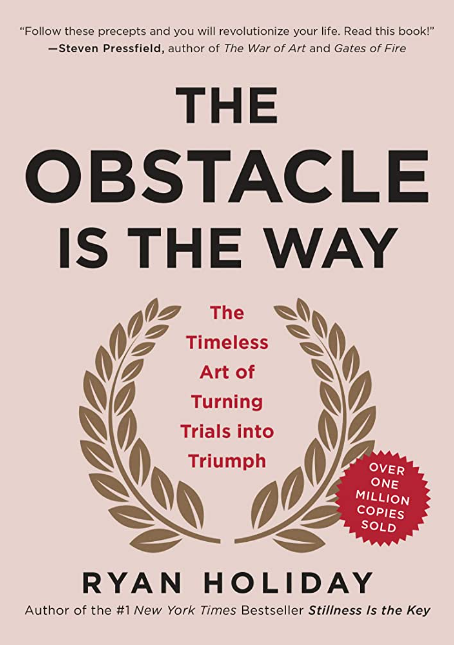
The Obstacle is the way by Ryan Holiday
Stoics focus on the things they can control, let go of everything else, and turn every new obstacle into an opportunity to get better, stronger, tougher. As Marcus Aurelius put it nearly 2000 years ago: “The impediment to action advances action. What stands in the way becomes the way.”
Ryan Holiday shows us how some of the most successful people in history — from John D. Rockefeller to Steve Jobs — have applied stoicism to overcome difficult or even impossible situations.
In your chess career and in life you’ll have periods when you feel frustrated, demoralized, or stuck in a rut. Whenever that happens, pick this book. It helped us too, during the toughest times for ChessMood.
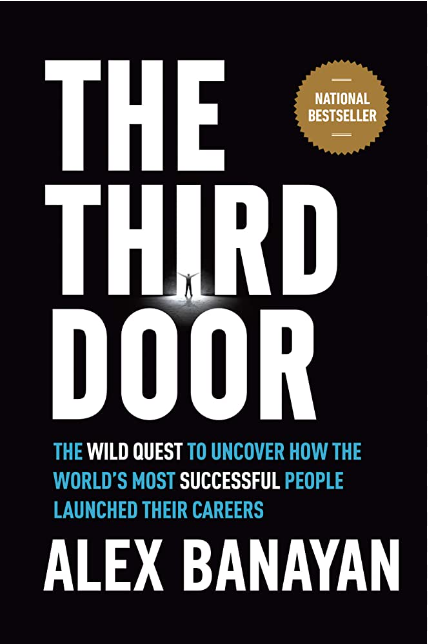
The 3rd Door by Alex Banayan
Life, business, success… it’s just like a nightclub. There are always three ways in. There’s the First Door: the main entrance, where ninety-nine percent of people wait in line. The Second Door: the VIP entrance, where the billionaires and celebrities slip through. But what no one tells you is that there is always, always… the Third Door. It’s the entrance where you have to jump out of line, run down the alley, bang on the door a hundred times, climb over the dumpster, crack open the window, sneak through the kitchen — there’s always a way in.
Whether it’s how Bill Gates sold his first piece of software or how Steven Spielberg became the youngest studio director in Hollywood history, they all took the Third Door. And the same you can do with your chess career!
The book is full of fantastic and inspirational stories that will help you to become excuseless, always think creatively, differently, and get what you want.
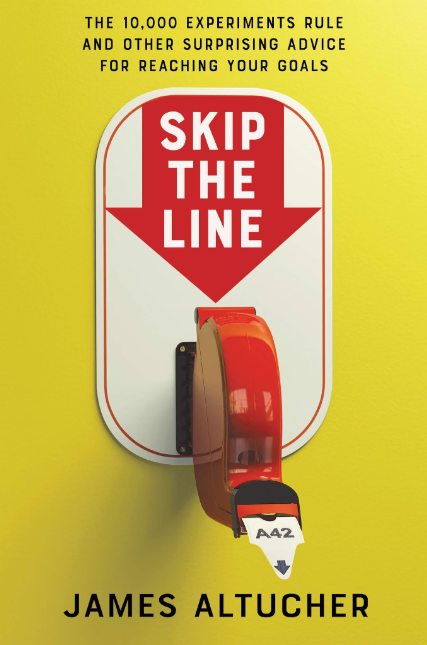
Skip the Line by James Altucher
James is a successful entrepreneur, investor, standup comedian, podcaster and also… a chess master! He has many techniques that served him to get to the top in everything he touched.
And in this book, he generously shares them. Many of those techniques will significantly help you to cut the road to success in chess too.
James was also a guest on ChessMood Podcast, and you can listen to the episode here.
And here is the link to the podcast where I was his guest.
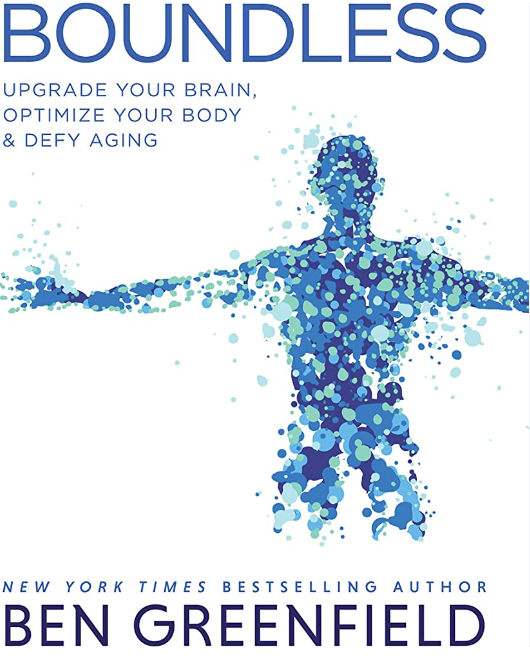
Boundless by Ben Greenfield
For peak performance, you also have to sleep well, eat healthy and do other things to help your brain help you. Every high-performance coach we’ve worked with, mentioned this book and said Ben is the guy!
If the book is too long for you, you can check out his YouTube channel, or visit his website, where you can find articles on topics you’re interested in the most.
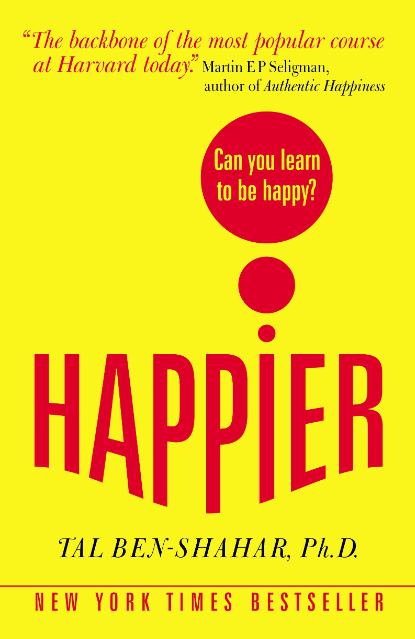
“Happier” by Tal Ben-Shahar
We often strive and try to achieve different things, thinking that they’ll give us happiness. And only in the end, we find out that we were wrong. We didn’t become happier. This is what serial entrepreneur Tony Hsieh, the founder of Zappos, which has been sold to Amazon for 1.2 BLN, realized after selling the company.
“So, what if we start from the end?”, he asks in the epilogue of his book.
Sounds like a smart question, doesn't it? 🙂
Maybe we should also ask it first, before setting long-term goals like becoming a Grandmaster or getting to 2,000 rating? 🙂
This book, written by Dr. Tal Ben-Shahar, is one of the best books in the “happiness” category. Highly recommended!
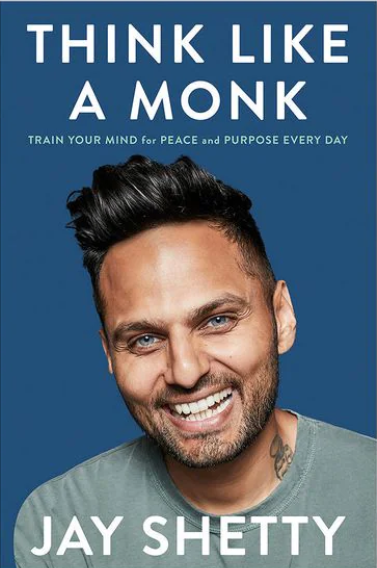
Think Like a Monk by Jay Shetty
When you think like a monk, you’ll understand:
-How to overcome negativity
-How to stop overthinking
-Why comparison kills love
-How to use your fear
-Why you can’t find happiness by looking for it
-How to learn from everyone you meet
-Why you are not your thoughts
-How to find your purpose
-Why kindness is crucial to success
And much more…
The book will help you find your purpose, clear your thoughts and live with a smile in your soul.

High Performance Habits by Brendon Burchard
We have read many books on high performance, worked with different high-performance coaches. Brendon is one of the few who really knows what he’s talking about and has really worked with lots of high achievers. In his book he explains his HP6, which was very effective for us and many of our students too.
Before reading his book, you can go through his high-performance indicator assessment test, see your results and then track your progress after finishing the book. Also, he has created a very cool performance management tool, where we’re subscribers. It’s a great one! But don’t subscribe before reading the book.

Peak Performance by Brad Stulberg and Steve Magness
Every champion speaks in their interviews on how hard they worked, how they pushed to their limits…You know their names.
What you don’t know is the names of the other 99% of triers. Who also tried to get there, worked very hard as well. But they burnt out on their way. What’s their difference? Often it comes to 1 thing: high achievers give lots of attention to how they REST and how they keep the balance! They not only train like the best, they REST like the BEST!
In this book, you’ll find lots of techniques on how to sustain peak performance, rest like the best, and avoid burnout.

Unlimited Power by Tony Robbins
This is the absolute best thing Tony has done for the world. Here, you’ll not only find motivation and inspiration to go forward and achieve your dreams, but you’ll also learn many strong techniques based on science and neuroscience. Not surprisingly, this is one of the 1st books that many achievers, top athletes and CEOs have read. It was one of Avetik’s first books too.

Awaken the Giant within by Tony Robbins
And this is the 2nd best thing Tony has done 🙂
If you feel you’re in the river of life, and it takes you somewhere you don’t want to end up in, this is your 2nd read after the “Unlimited Power.” It’ll help you to wake up and take control of your life.

Chop Wood Carry Water by Joshua Medcalf
If you have a long-term goal, and are preparing to run a “chess marathon”, this is the first book you should start with.
You’ll learn:
- Why the process is more important than the goal
- Why you must detach yourself from results
- How to develop a growth mindset
- How to use the biggest challenges as a training ground for greatness
- Why you never want to have your identity wrapped up in what you do.

Ego is the Enemy by Ryan Holiday
The most common enemy lies within: our ego. Early in our careers, it impedes learning and the cultivation of talent. With success, it can blind us to our faults and sow future problems. In failure, it magnifies each blow and makes recovery more difficult. At every stage, ego holds us back. Even when it helps us to achieve things, in the end we fill empty, because it wasn’t our real wish. It belonged to the little worm inside us - the ego.
By learning to harness our ego, we’ll not only take failures easier, but we’ll also go forward faster and in the right direction.
Note: The first part of the book is a bit boring. Don’t close it. Jump to the section “To be or to do?”

Discipline is the Destiny by Ryan Holiday
"Lack of discipline puts you in danger; it also colors who and what
you are." — Seneca
Many chess players come up with a training plan, create a system, make a decision to start the next Monday, do it for a few days and then… fail to keep the discipline. In this book, you’ll find lots of interesting and inspirational stories about different people, from Marcus Aurelius to Napoleon. And you’ll not be able to help but notice how disciplined you became.

Atomic Habits by James Clear
Being disciplined, getting rid of bad habits and installing good ones — go hand in hand. Many books have been written about habits, but nothing comes close to the brilliant work James Clear has done with his book.
If you have bad chess habits, like playing bullet, or anything else in life, here is half of the solution. The other half is in your hands. Will you read it and practice what you study there?

Essentialism by Greg McKeown
If you have a habit of buying lots of books and courses, jumping from one to another and never finishing them, you should pick up this book. There is so much useful stuff for your chess. But you can’t do all of them. The key is to remove all useful activities, and focus on the most effective ones ONLY! To say “NO” to many resources, and keep your “YES” to a few essential ones.
A great book by Greg Mckeown.

The Obstacle is the way by Ryan Holiday
Stoics focus on the things they can control, let go of everything else, and turn every new obstacle into an opportunity to get better, stronger, tougher. As Marcus Aurelius put it nearly 2000 years ago: “The impediment to action advances action. What stands in the way becomes the way.”
Ryan Holiday shows us how some of the most successful people in history — from John D. Rockefeller to Steve Jobs — have applied stoicism to overcome difficult or even impossible situations.
In your chess career and in life you’ll have periods when you feel frustrated, demoralized, or stuck in a rut. Whenever that happens, pick this book. It helped us too, during the toughest times for ChessMood.

The 3rd Door by Alex Banayan
Life, business, success… it’s just like a nightclub. There are always three ways in. There’s the First Door: the main entrance, where ninety-nine percent of people wait in line. The Second Door: the VIP entrance, where the billionaires and celebrities slip through. But what no one tells you is that there is always, always… the Third Door. It’s the entrance where you have to jump out of line, run down the alley, bang on the door a hundred times, climb over the dumpster, crack open the window, sneak through the kitchen — there’s always a way in.
Whether it’s how Bill Gates sold his first piece of software or how Steven Spielberg became the youngest studio director in Hollywood history, they all took the Third Door. And the same you can do with your chess career!
The book is full of fantastic and inspirational stories that will help you to become excuseless, always think creatively, differently, and get what you want.

Skip the Line by James Altucher
James is a successful entrepreneur, investor, standup comedian, podcaster and also… a chess master! He has many techniques that served him to get to the top in everything he touched.
And in this book, he generously shares them. Many of those techniques will significantly help you to cut the road to success in chess too.
James was also a guest on ChessMood Podcast, and you can listen to the episode here.
And here is the link to the podcast where I was his guest.

Boundless by Ben Greenfield
For peak performance, you also have to sleep well, eat healthy and do other things to help your brain help you. Every high-performance coach we’ve worked with, mentioned this book and said Ben is the guy!
If the book is too long for you, you can check out his YouTube channel, or visit his website, where you can find articles on topics you’re interested in the most.

“Happier” by Tal Ben-Shahar
We often strive and try to achieve different things, thinking that they’ll give us happiness. And only in the end, we find out that we were wrong. We didn’t become happier. This is what serial entrepreneur Tony Hsieh, the founder of Zappos, which has been sold to Amazon for 1.2 BLN, realized after selling the company.
“So, what if we start from the end?”, he asks in the epilogue of his book.
Sounds like a smart question, doesn't it? 🙂
Maybe we should also ask it first, before setting long-term goals like becoming a Grandmaster or getting to 2,000 rating? 🙂
This book, written by Dr. Tal Ben-Shahar, is one of the best books in the “happiness” category. Highly recommended!

Think Like a Monk by Jay Shetty
When you think like a monk, you’ll understand:
-How to overcome negativity
-How to stop overthinking
-Why comparison kills love
-How to use your fear
-Why you can’t find happiness by looking for it
-How to learn from everyone you meet
-Why you are not your thoughts
-How to find your purpose
-Why kindness is crucial to success
And much more…
The book will help you find your purpose, clear your thoughts and live with a smile in your soul.
Chess Books
A great chess book plants ideas in your head that will help you build a strong foundation. And it's based on this foundation that you'll make decisions on the board.
Below we're sharing our list of great chess books for every different aspect of the game.
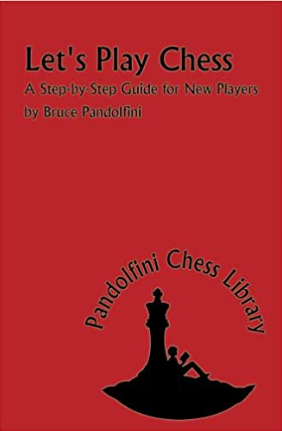
Let's Play Chess by Bruce Pandolfini
This book, written by Bruce Pandolfini, teaches the basics of the game. It’s perfect for those who want to learn to play chess from scratch and get a basic idea of how chess players think. And with steps and diagrams, you can read most of the book without a chess set.
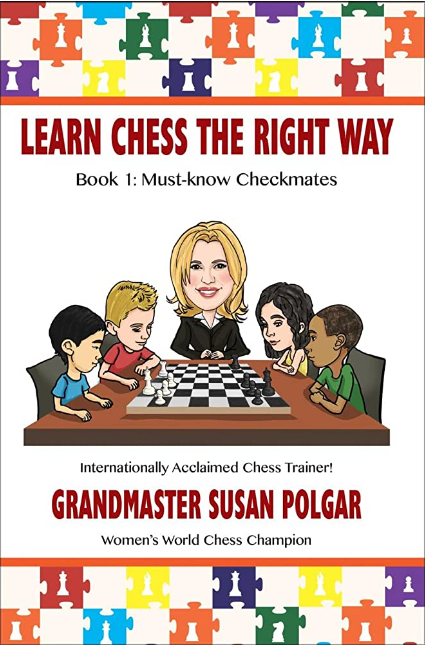
Learn Chess The Right Way by Susan Polgar
"Learn Chess The Right Way" is a series of 5 books written by Susan Polgar, a former Woman’s World Champion and also a renowned chess coach. As you go through the books, you’ll learn about the most important checkmates, material-winning tactics and simple defensive techniques in a well-structured manner. It will help you develop an understanding of common chess patterns.
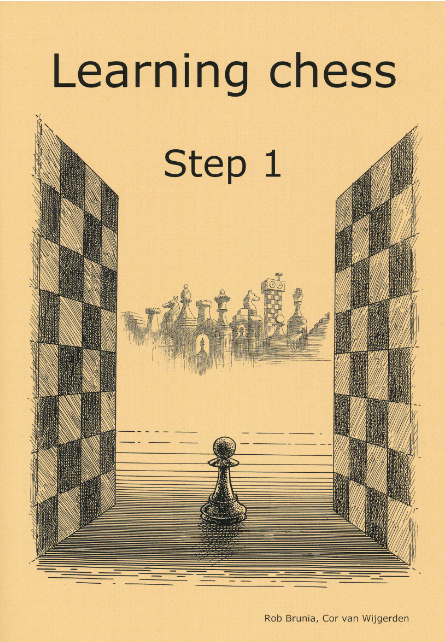
The Step Chess Method by Rob Brunia & Cor van Wijgerden
"The Chess Step Method" is a 6-book series designed for coaches and parents who wish to teach chess to children. It covers everything including how to teach, in what order to cover the topics, tips on hosting group lessons and more.
Many schools and chess clubs around the world have adopted this method. And if you’re looking to teach kids, you should definitely check this book.
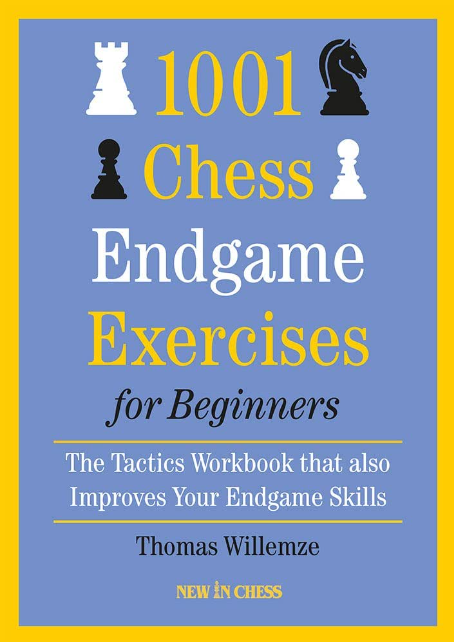
1001 Chess Endgame Exercises by Willemze Thomas
This book is for training your endgame tactics. The author explains the basic concepts, and then shares exercises based on individual themes to help you build your knowledge, step-by-step.
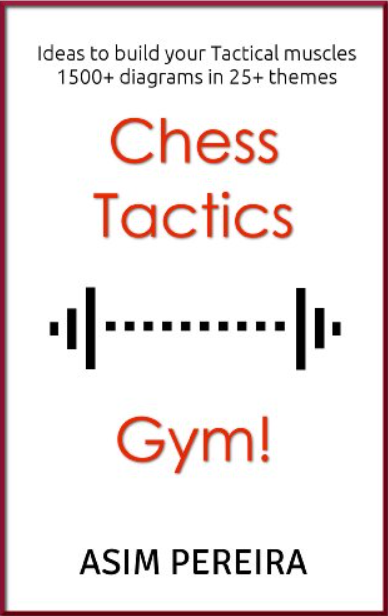
Chess Tactics Gym by Asim Pereira
This book covers some of the most important patterns in chess like forks, skewers, pins, double attacks and more. It will help build your tactical skill with over 1500 puzzles, categorized into 25 different themes. It’s a great book for solving puzzles and keeping your tactical vision sharp.
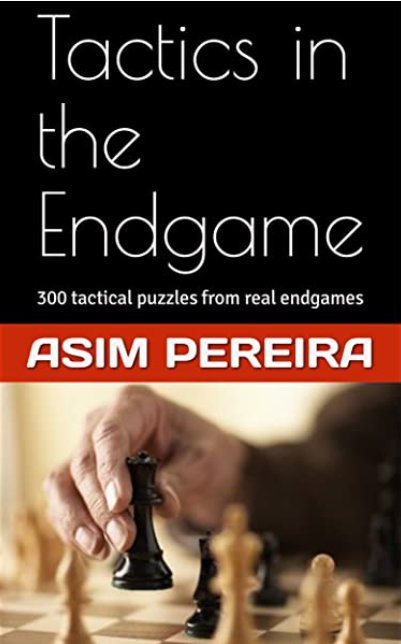
Tactics in the Endgame by Asim Pereira
There’s so much more to this book than 300 endgame puzzles, taken from real games. You’ll see positions where you’re at a disadvantage, and you’ve to find the best move to draw the game. Or you’re in an equal-looking position, and you have to find the winning move.
So you’ll not just be sharpening your endgame skills, but also learning the basics of saving lost positions and converting better ones.
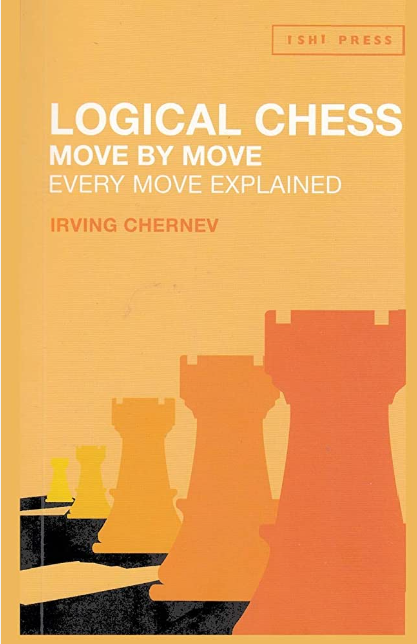
Logical Chess Move by Move by Irving Chernev
In this book Irving Chernev, a prolific writer of the early 20th century, explains 33 classic games. He shares the ideas behind the moves in a easy to understand manner, without going into complex variations that often scare away new players.
If you want to get a basic understanding of chess strategy, this book is a great starting point.
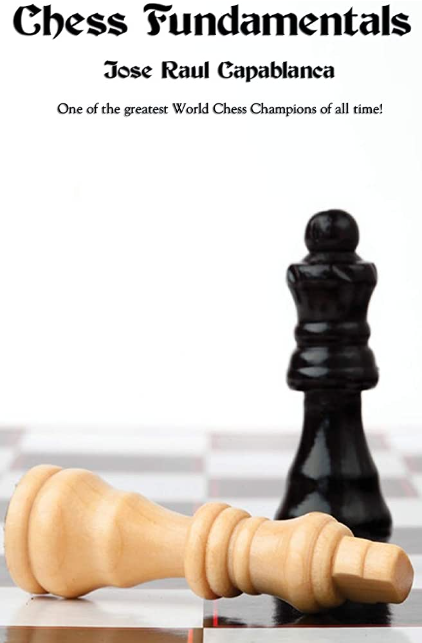
Chess Fundamentals by Jose R. Capablanca
Imagine learning from one of the greatest players of the game, who at his peak was considered ages ahead of his rivals. What was his approach? How did he think about the game? How did he make decisions?
Since this book was written in the early 20th century by the legendary 3rd World Champion, Jose Raul Capablanca, you’ll be learning from his chess wisdom.
The book covers basic mates, general strategy of the opening, middlegame plans, how to play in the endgames and so much more. Through it, you’re not just learning, but you’re understanding how one of the greatest players approached the game. Pure gold!
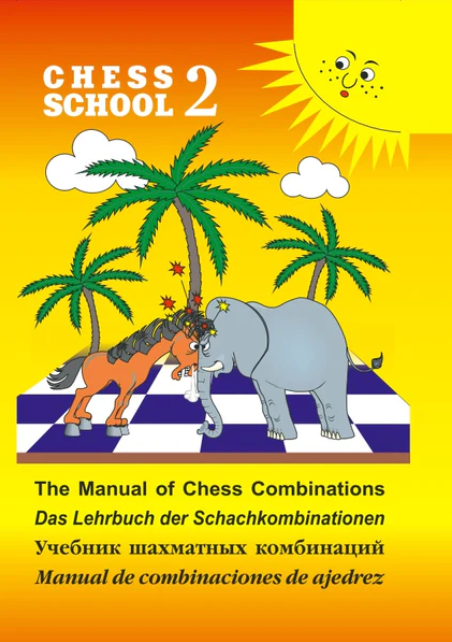
Chess School 2 by Sergey Ivashchenko
Solving tactics regularly is a must. And this is where good tactical workbooks become important. They help develop an eye for chess combinations to keep your tactics sharp.
This book does an excellent job at it with around 1200 carefully selected tactical excercises from real games in an increasing order of difficulty. Use this as a workbook for solving chess puzzles reguarly.
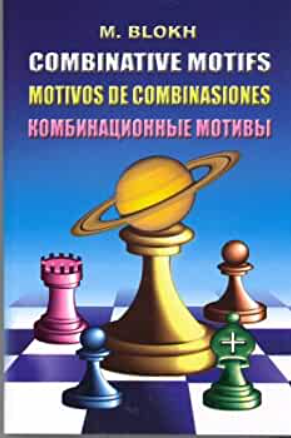
Combinative Motifs by Maxim Blokh
This is another great book to solve puzzles. In the book, you’ll find over 1200 positions, each marked on a difficulty scale of 1-11. What really stands out is quality of the puzzles. You can sense the author put a lot of effort into choosing the right ones. Highly recommended!
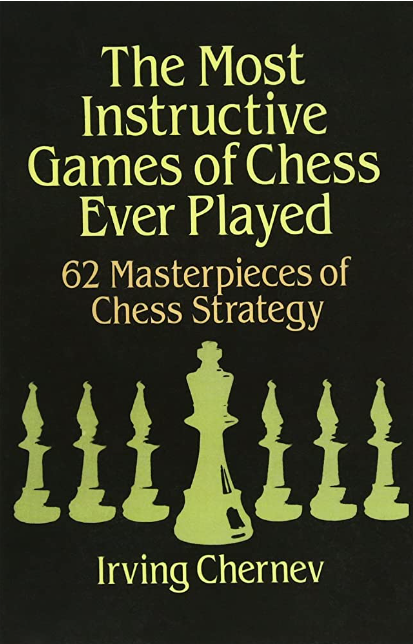
The Most Instructive Games of Chess Ever Played by Irving Chernev
We’ve taken inspiration from this book while creating our courses on chess classics. Through Chernev’s annotations, you’ll see how greats like Capablanca, Tarrasch, made decisions and used certain techniques in their games. Plus, this book is not littered with long variations.
Grab a warm cup of tea or coffee as you read through the book. Make your learning experience enjoyable.
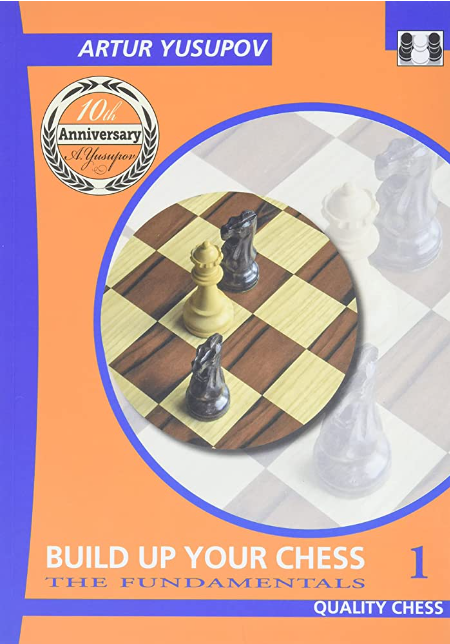
Chess School – the Fundamentals by Artur Yusupov
Artur Yusupov is not just a former world no.3 (in an era where top 2 were Karpov and Kasparov), but he’s also a world-class trainer. And this, Yusupov’s Chess School, is perhaps his most famous work. It’s a series of 9 chess books in total, divided into 3 levels, with each having 3 books. Fundamentals is the first level. Here, Yusupov explains the basic concepts that players at the intermediate and above level should know, like outposts, double attack, weak points and others. You also have to solve a few puzzles which really helps build your understanding. Great book for someone who’s at the intermediate level and above.
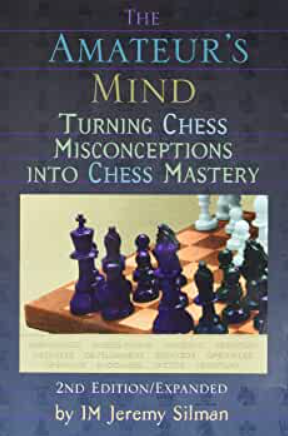
The Amateur's Mind by Jeremy Silman
How do players at different rating levels think? In this book, you’ll learn about what goes inside the minds of players, where their thinking goes wrong, and how you should think to make better decisions.
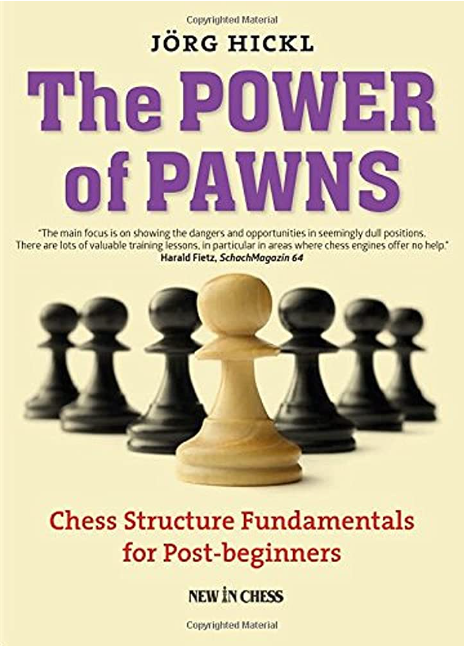
The Power of Pawns by Jorg Hickl
Pawn structures often dictate where to deploy pieces, where the King will be safe, what plans to make and so much more. And this book is a great starting point to learn about this topic as Grandmaster Jörg Hickl uses practical examples to explain typical structures, strategies and plans.
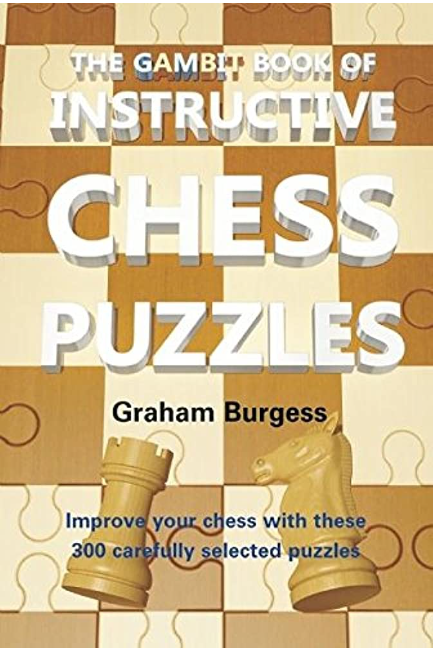
The Gambit Book of Instructive Chess Puzzles by Graham Burgess
This is a good book to sharpen your tactics and learn instructive lessons along the way. The puzzle selection is excellent. The structure is great. You’ll find puzzles on tactics, checkmates, endgames, attack, seeking counterchances while defending and more. The detailed solutions don’t just show you the best line but, also cover the variations where you could go wrong, explaining why they’re bad and emphasizing on underlying principles.
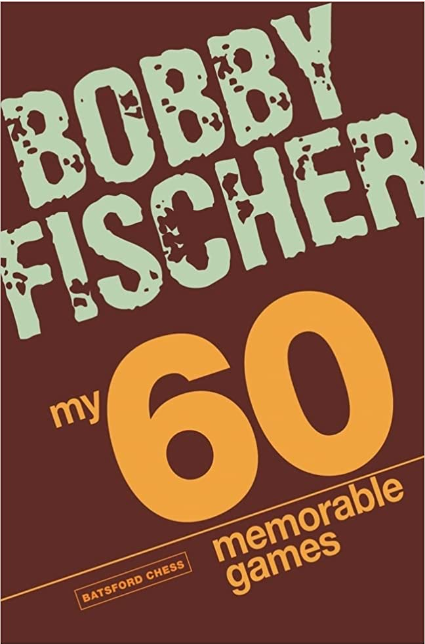
My 60 Memorable Games by Bobby Fischer
This book is written by arguably the greatest chess player of all time, the legendary Robert James Fischer! He shares his 60 most memorable games, explaining them in detail, sharing his analysis, thinking process, and the psychological battle behind each of them.
Note that there are lots of long variations here. After all, it’s a legend writing the book. But don’t let that discourage you. Instead, look at it from the perspective of how one of the greatest players would think.
It’s highly recommended you see the games on a chess board, and keep a pen and paper handy to take notes.
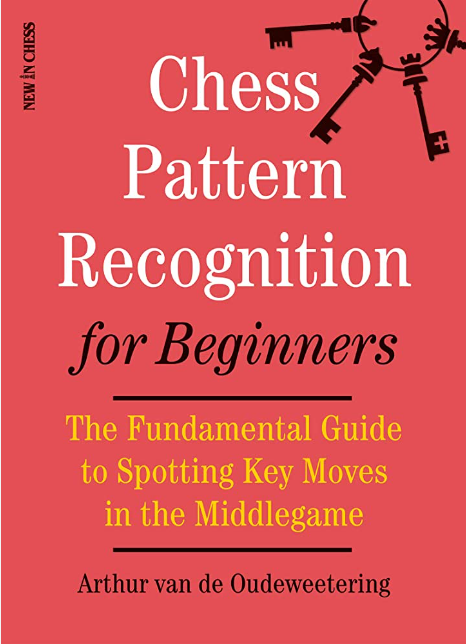
Chess Pattern Recognition by Arthur van de Oudeweetering
All top players are good at recognizing patterns, not just simple tactical patterns like pins, forks, skewers, but also the ones you can use in attack, positional or strategic play.
This book will teach you the most important patterns to mobilize your pieces, put pressure on your opponent, attack the enemy King, execute standard sacrifices to get the initiative among others.
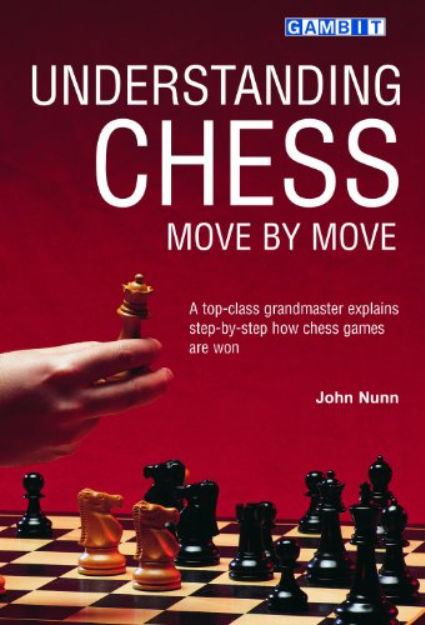
Understanding Chess Move by Move by John Nunn
This book contains 30 chess classics, each highlighting a unique strategy. Grandmaster John Nunn, a former top-10 player in the world and well-known author, explains the logic behind the moves, supplementing it with variations wherever necessary. It makes for a great learning experience!
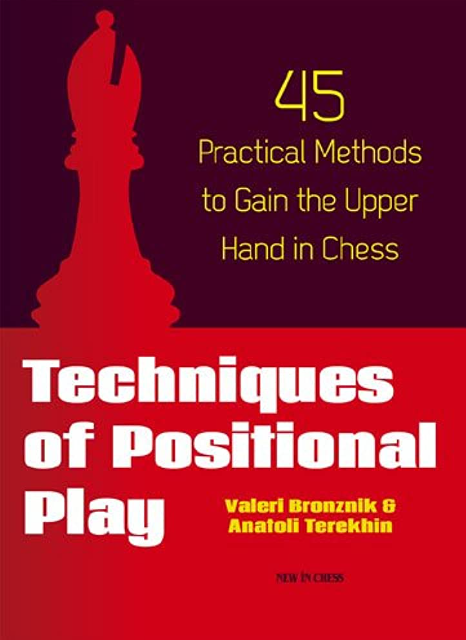
Techniques of Positional Play by Valeri Bronznik
There’s a rumor that every Russian schoolboy has read this book. Don’t know how much of it is true, but there’s a lot to learn from it.
It will teach you many subtle nuances of chess, that you might not be aware of like, how to restrict the enemy Knight, which Rook belongs on c, d or e-file?, what’s the best way to exchange a piece?, etc.
The book is structured in a way that the author first introduces a positional concept, and then lays down a bunch of practical examples to help drill in the idea.
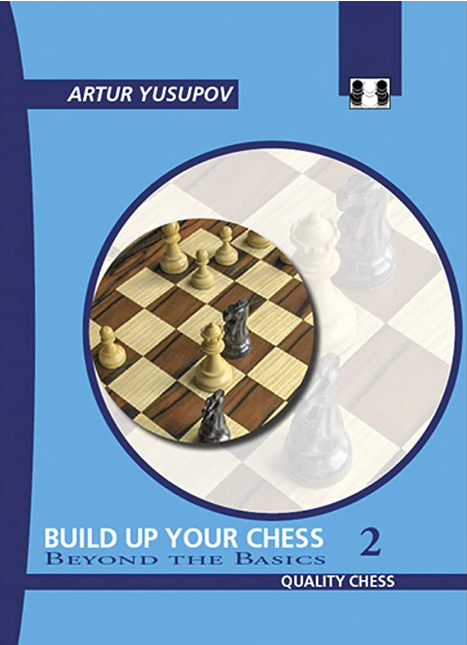
Chess School - Beyond the Basics by Artur Yusupov
This is a series of 9 chess books in total, divided into 3 levels, with each having 3 books. It’s written by former world no.3 player Artur Yusupov. Beyond the Basics is the 2nd level.
Here, Yusupov covers topics like building an opening repertoire, why it’s important to study classics, positional chess, playing in endgames, calculation and strategy.
You’ll first learn the topic, then solve exercises based on what you learn. At the end there’s a test to see how well you’ve understood the concepts.
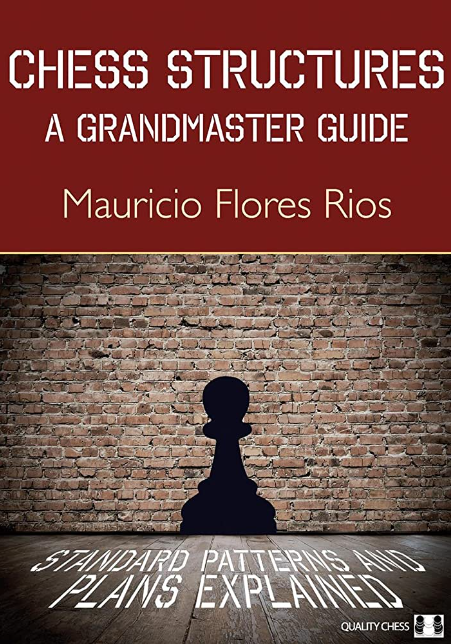
Chess Structures by Mauricio Flores Rios
In this book, GM Mauricio Flores Rios breaks down 28 most common structures in chess, and shares the common plans, ideas, and piece positioning in each of them. You’ll see all of this through carefully selected model games. Plus, the author also shares what you should look to avoid in each of these structures. There are positional exercises with detailed solutions to test and deepen your understanding. Great read!
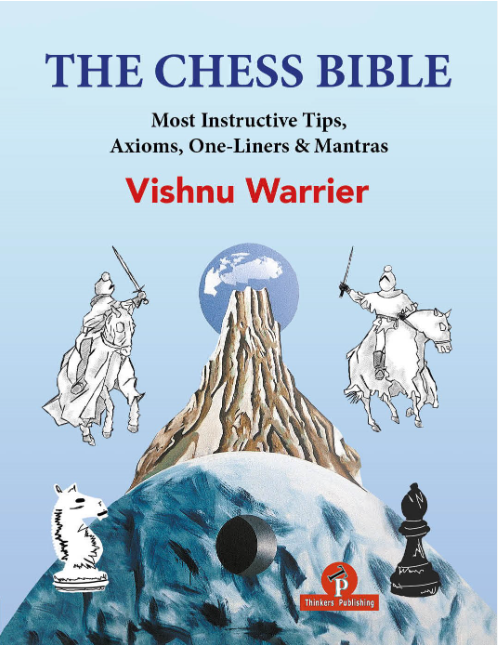
The Chess Bible by Vishnu Warrier
The author, Vishnu Warrier, is our student who once won a tournament where his starting rank was over 60! Once you read the interview with him, you’ll quickly understand how good he’s at structuring things. Vishnu really knows how to get more done in less. And this philosophy reflects in his work too.
His book is a collection of powerful one-liners, axioms and mantras on chess psychology and general positions. They help you focus on the core ideas that matter, while cutting through all the fluff. Fantastic book to prime your mind and get into the right mental state before you play a game.
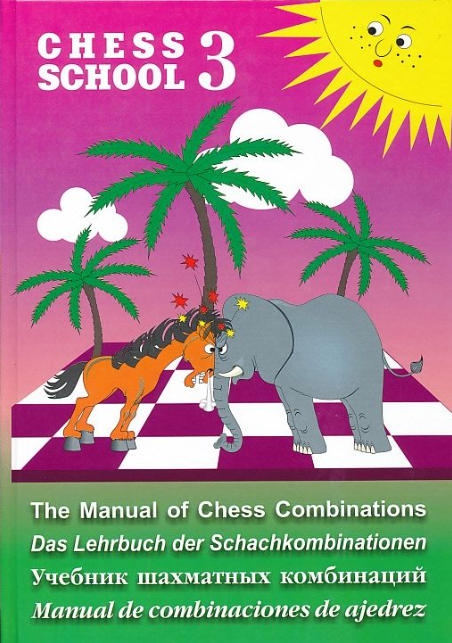
Chess School 3 by Alexander Mazia
Originally written in Russian, this is a classic chess exercise book, full of high-quality chess puzzles for solving. There are no hints. You’re only told who’s turn it is and you have to find the best continuation. It’s a great way to train your calculation, because it simulates how we make decisions in a real game.
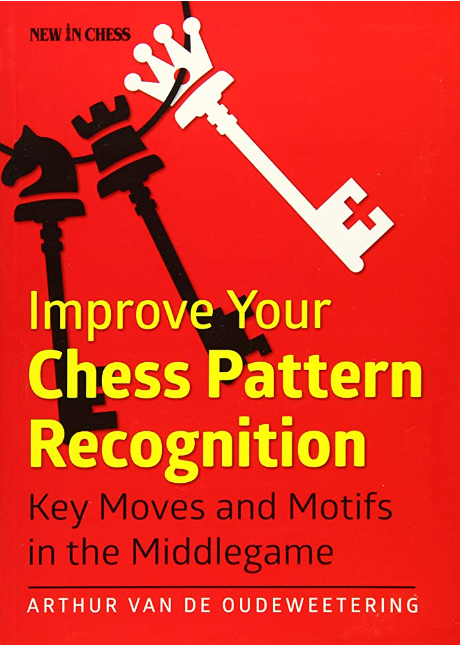
Improve Your Chess Pattern Recognition by Arthur van de Oudeweetering
The book focuses on pattern recognition, particularly on the middlegame motifs. Each chapter of the book is based on a distinctive theme, with the author providing enough examples to aid one in grasping the pattern. On top of that, the book also includes exercises, which make it an excellent resource for anyone looking to install new patterns into their brain.
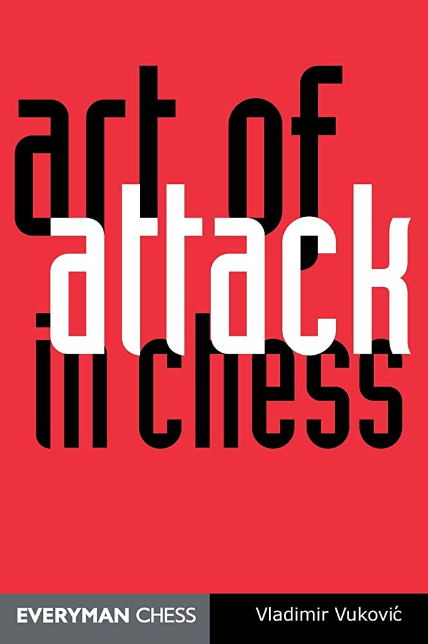
Art of Attack in Chess by Vladimir Vukovic
This is a classic written on attacking in chess that’s often recommended for study by many strong masters. There are plenty of instructive games in here. And as you go through them, you’ll learn about the fundamental attacking techniques in chess.
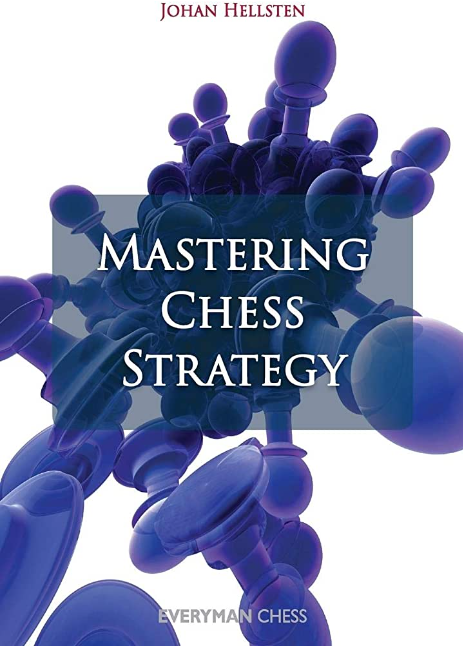
Mastering Chess Strategy by Johan Hellsten
GM Johan Hellsten, one of the Grandmaster coaches at ChessMood, has a knack for explaining complex ideas in simple words. You can sense it once you watch his courses or read his articles.
And in this book, he teaches you important middlegame concepts and strategies, combining it with his knack for simplifying complex concepts and high-quality puzzle selection. There are ample exercises to help you drill what you learn through the book. It’s a must-read for any serious player looking to improve.
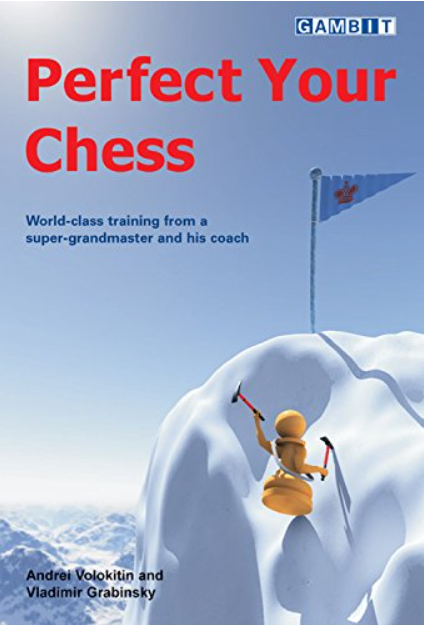
Perfect Your Chess by Volokitin & Grabinksy
Our IM coach (2493 peak) credits this book for helping him raise 150 elo, going from 2200 to 2350 elo, without a chess coach! And he’s not alone. There are many stories of players who’ve seen great improvements in their game by solving puzzles from this book.
And with the author being a coach of a 2600+ Grandmaster, the selection of positions in the book is absolutely top-class. And the solutions are explained in such a way that they will add depth to your chess knowledge and teach you about life. A must read for anyone over 2000!
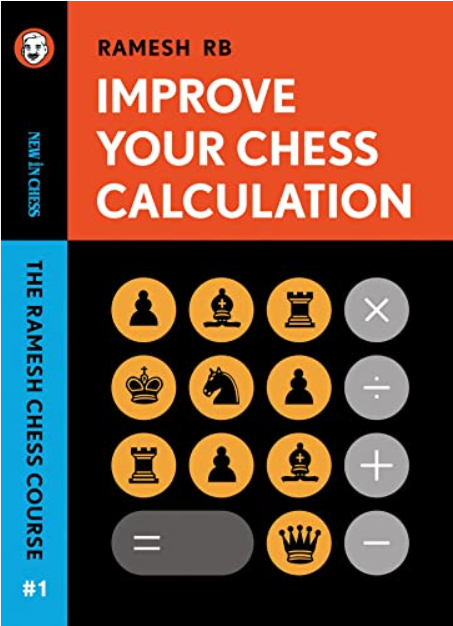
Improve Your Chess Calculation by Ramesh RB
The author, GM RB Ramesh, is one of the world’s most successful chess coaches, with a reputation for transforming Indian prodigies into world-class Grandmasters.
And in this book, Ramesh speaks about what it takes to improve at calculation, the psychological factors that lie behind, the mistakes one can make while sharing insights from his experience!
Not only will this book help a player improve at calculation, but even coaches can use this book to train their students.
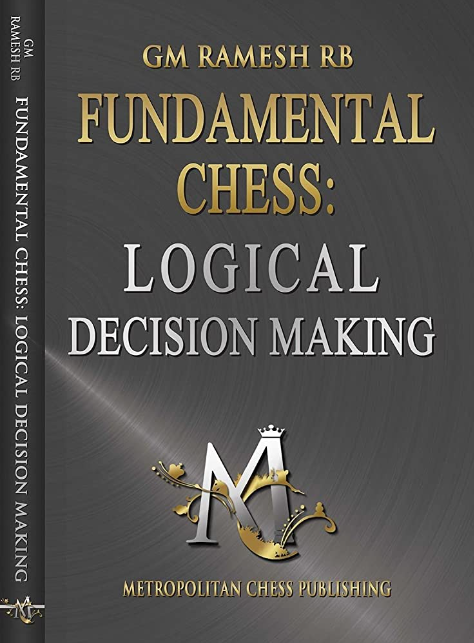
Fundamental Chess: Logical Decision Making by Ramesh RB
This is another gem from GM RB Ramesh. It teaches you about decision-making in chess in a very simple language. Ramesh shares thinking processes many strong players would intuitively follow, like finding drawbacks of a move, figuring out the opponent’s intentions and other techniques.
He also talks about chess improvement, highlighting what it takes to become a stronger player, sometimes even taking a philosophical view to explain his points. And when there are chess positions, you won’t find long variations in there. So with decent visualiziation skills, it’s possible to read this book without a chess board.
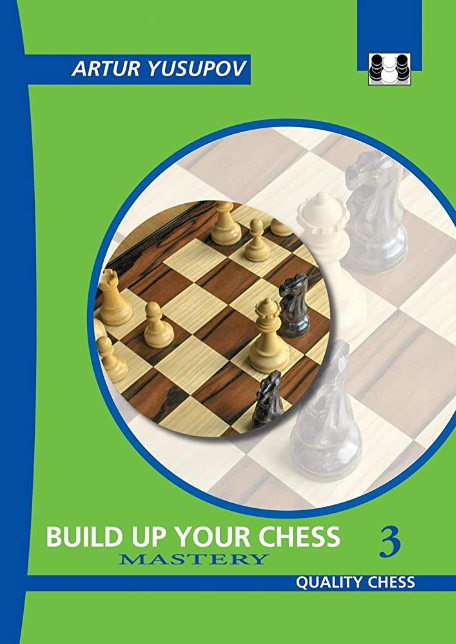
Chess School - Mastery by Artur Yusupov
This is a series of 9 chess books in total, divided into 3 levels, with each having 3 books. It’s written by former world no.3 player Artur Yusupov. Mastery is the 3rd level.
Here, Yusupov covers topics like pawn endings, Rook vs Bishop, isolated pawns, blockade, hanging pawns, simple combinations, and evaluation of the position. The structure remains the same as with other books in the series – you’ll learn the topic, and then solve a few puzzles based on what you learn. Great explanation. Great position selection. Fantastic book!
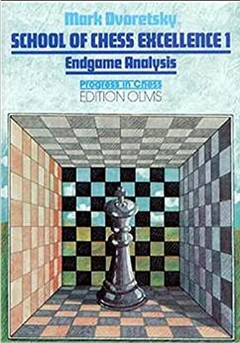
School of Chess Excellence by Mark Dvoretsky
School of Chess Excellence is a 4-book series, written by a great trainer of the past era, Mark Dvorestky and his student Artur Yusupov, a former world no.3. The first book is on endgame analysis; second on tactical play; third on strategic play; and the fourth on opening developments. With carefully selected examples and explanations, you’ll find lots of wisdom packed in this book.
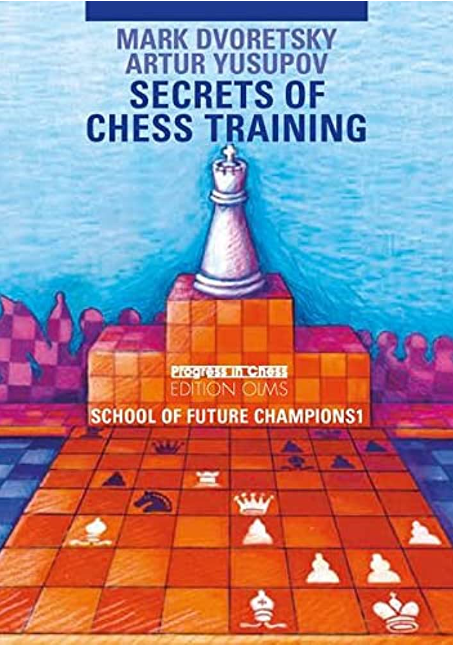
School of Future Champions by Mark Dvoretsky
School of Future champions is a 5-book series written by Mark Dvorestky & Artur Jussupow duo. It provides valuable insights on how to study your own games and learn from chess classics.
You’ll also get a glimpse into the Soviet school style of improving at chess, which has created so many strong Grandmasters. A great-read for serious tournament players looking to improve their game.
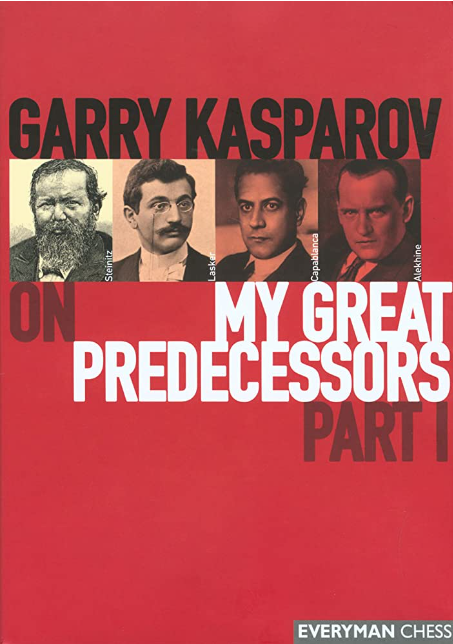
My Great Predecessors by Garry Kasparov
This is a series of 5 books written by perhaps the greatest player of all time, Garry Kasparov. In each book, he analyzes the classic games of the World Champions and other greats.
Let that sink in – one of the all-time greatest, sharing his analysis on the games played by other greats. Not only that, there are lots of behind-the-scene stories that you won’t find anywhere else.
Reading this book is like going on a journey in the rich history of chess, with the one of the greatest as your guide. Highly recommended!

Let's Play Chess by Bruce Pandolfini
This book, written by Bruce Pandolfini, teaches the basics of the game. It’s perfect for those who want to learn to play chess from scratch and get a basic idea of how chess players think. And with steps and diagrams, you can read most of the book without a chess set.

Learn Chess The Right Way by Susan Polgar
"Learn Chess The Right Way" is a series of 5 books written by Susan Polgar, a former Woman’s World Champion and also a renowned chess coach. As you go through the books, you’ll learn about the most important checkmates, material-winning tactics and simple defensive techniques in a well-structured manner. It will help you develop an understanding of common chess patterns.

The Step Chess Method by Rob Brunia & Cor van Wijgerden
"The Chess Step Method" is a 6-book series designed for coaches and parents who wish to teach chess to children. It covers everything including how to teach, in what order to cover the topics, tips on hosting group lessons and more.
Many schools and chess clubs around the world have adopted this method. And if you’re looking to teach kids, you should definitely check this book.

1001 Chess Endgame Exercises by Willemze Thomas
This book is for training your endgame tactics. The author explains the basic concepts, and then shares exercises based on individual themes to help you build your knowledge, step-by-step.

Chess Tactics Gym by Asim Pereira
This book covers some of the most important patterns in chess like forks, skewers, pins, double attacks and more. It will help build your tactical skill with over 1500 puzzles, categorized into 25 different themes. It’s a great book for solving puzzles and keeping your tactical vision sharp.

Tactics in the Endgame by Asim Pereira
There’s so much more to this book than 300 endgame puzzles, taken from real games. You’ll see positions where you’re at a disadvantage, and you’ve to find the best move to draw the game. Or you’re in an equal-looking position, and you have to find the winning move.
So you’ll not just be sharpening your endgame skills, but also learning the basics of saving lost positions and converting better ones.

Logical Chess Move by Move by Irving Chernev
In this book Irving Chernev, a prolific writer of the early 20th century, explains 33 classic games. He shares the ideas behind the moves in a easy to understand manner, without going into complex variations that often scare away new players.
If you want to get a basic understanding of chess strategy, this book is a great starting point.

Chess Fundamentals by Jose R. Capablanca
Imagine learning from one of the greatest players of the game, who at his peak was considered ages ahead of his rivals. What was his approach? How did he think about the game? How did he make decisions?
Since this book was written in the early 20th century by the legendary 3rd World Champion, Jose Raul Capablanca, you’ll be learning from his chess wisdom.
The book covers basic mates, general strategy of the opening, middlegame plans, how to play in the endgames and so much more. Through it, you’re not just learning, but you’re understanding how one of the greatest players approached the game. Pure gold!

Chess School 2 by Sergey Ivashchenko
Solving tactics regularly is a must. And this is where good tactical workbooks become important. They help develop an eye for chess combinations to keep your tactics sharp.
This book does an excellent job at it with around 1200 carefully selected tactical excercises from real games in an increasing order of difficulty. Use this as a workbook for solving chess puzzles reguarly.

Combinative Motifs by Maxim Blokh
This is another great book to solve puzzles. In the book, you’ll find over 1200 positions, each marked on a difficulty scale of 1-11. What really stands out is quality of the puzzles. You can sense the author put a lot of effort into choosing the right ones. Highly recommended!

The Most Instructive Games of Chess Ever Played by Irving Chernev
We’ve taken inspiration from this book while creating our courses on chess classics. Through Chernev’s annotations, you’ll see how greats like Capablanca, Tarrasch, made decisions and used certain techniques in their games. Plus, this book is not littered with long variations.
Grab a warm cup of tea or coffee as you read through the book. Make your learning experience enjoyable.

Chess School – the Fundamentals by Artur Yusupov
Artur Yusupov is not just a former world no.3 (in an era where top 2 were Karpov and Kasparov), but he’s also a world-class trainer. And this, Yusupov’s Chess School, is perhaps his most famous work. It’s a series of 9 chess books in total, divided into 3 levels, with each having 3 books. Fundamentals is the first level. Here, Yusupov explains the basic concepts that players at the intermediate and above level should know, like outposts, double attack, weak points and others. You also have to solve a few puzzles which really helps build your understanding. Great book for someone who’s at the intermediate level and above.

The Amateur's Mind by Jeremy Silman
How do players at different rating levels think? In this book, you’ll learn about what goes inside the minds of players, where their thinking goes wrong, and how you should think to make better decisions.

The Power of Pawns by Jorg Hickl
Pawn structures often dictate where to deploy pieces, where the King will be safe, what plans to make and so much more. And this book is a great starting point to learn about this topic as Grandmaster Jörg Hickl uses practical examples to explain typical structures, strategies and plans.

The Gambit Book of Instructive Chess Puzzles by Graham Burgess
This is a good book to sharpen your tactics and learn instructive lessons along the way. The puzzle selection is excellent. The structure is great. You’ll find puzzles on tactics, checkmates, endgames, attack, seeking counterchances while defending and more. The detailed solutions don’t just show you the best line but, also cover the variations where you could go wrong, explaining why they’re bad and emphasizing on underlying principles.

My 60 Memorable Games by Bobby Fischer
This book is written by arguably the greatest chess player of all time, the legendary Robert James Fischer! He shares his 60 most memorable games, explaining them in detail, sharing his analysis, thinking process, and the psychological battle behind each of them.
Note that there are lots of long variations here. After all, it’s a legend writing the book. But don’t let that discourage you. Instead, look at it from the perspective of how one of the greatest players would think.
It’s highly recommended you see the games on a chess board, and keep a pen and paper handy to take notes.

Chess Pattern Recognition by Arthur van de Oudeweetering
All top players are good at recognizing patterns, not just simple tactical patterns like pins, forks, skewers, but also the ones you can use in attack, positional or strategic play.
This book will teach you the most important patterns to mobilize your pieces, put pressure on your opponent, attack the enemy King, execute standard sacrifices to get the initiative among others.

Understanding Chess Move by Move by John Nunn
This book contains 30 chess classics, each highlighting a unique strategy. Grandmaster John Nunn, a former top-10 player in the world and well-known author, explains the logic behind the moves, supplementing it with variations wherever necessary. It makes for a great learning experience!

Techniques of Positional Play by Valeri Bronznik
There’s a rumor that every Russian schoolboy has read this book. Don’t know how much of it is true, but there’s a lot to learn from it.
It will teach you many subtle nuances of chess, that you might not be aware of like, how to restrict the enemy Knight, which Rook belongs on c, d or e-file?, what’s the best way to exchange a piece?, etc.
The book is structured in a way that the author first introduces a positional concept, and then lays down a bunch of practical examples to help drill in the idea.

Chess School - Beyond the Basics by Artur Yusupov
This is a series of 9 chess books in total, divided into 3 levels, with each having 3 books. It’s written by former world no.3 player Artur Yusupov. Beyond the Basics is the 2nd level.
Here, Yusupov covers topics like building an opening repertoire, why it’s important to study classics, positional chess, playing in endgames, calculation and strategy.
You’ll first learn the topic, then solve exercises based on what you learn. At the end there’s a test to see how well you’ve understood the concepts.

Chess Structures by Mauricio Flores Rios
In this book, GM Mauricio Flores Rios breaks down 28 most common structures in chess, and shares the common plans, ideas, and piece positioning in each of them. You’ll see all of this through carefully selected model games. Plus, the author also shares what you should look to avoid in each of these structures. There are positional exercises with detailed solutions to test and deepen your understanding. Great read!

The Chess Bible by Vishnu Warrier
The author, Vishnu Warrier, is our student who once won a tournament where his starting rank was over 60! Once you read the interview with him, you’ll quickly understand how good he’s at structuring things. Vishnu really knows how to get more done in less. And this philosophy reflects in his work too.
His book is a collection of powerful one-liners, axioms and mantras on chess psychology and general positions. They help you focus on the core ideas that matter, while cutting through all the fluff. Fantastic book to prime your mind and get into the right mental state before you play a game.

Chess School 3 by Alexander Mazia
Originally written in Russian, this is a classic chess exercise book, full of high-quality chess puzzles for solving. There are no hints. You’re only told who’s turn it is and you have to find the best continuation. It’s a great way to train your calculation, because it simulates how we make decisions in a real game.

Improve Your Chess Pattern Recognition by Arthur van de Oudeweetering
The book focuses on pattern recognition, particularly on the middlegame motifs. Each chapter of the book is based on a distinctive theme, with the author providing enough examples to aid one in grasping the pattern. On top of that, the book also includes exercises, which make it an excellent resource for anyone looking to install new patterns into their brain.

Art of Attack in Chess by Vladimir Vukovic
This is a classic written on attacking in chess that’s often recommended for study by many strong masters. There are plenty of instructive games in here. And as you go through them, you’ll learn about the fundamental attacking techniques in chess.

Mastering Chess Strategy by Johan Hellsten
GM Johan Hellsten, one of the Grandmaster coaches at ChessMood, has a knack for explaining complex ideas in simple words. You can sense it once you watch his courses or read his articles.
And in this book, he teaches you important middlegame concepts and strategies, combining it with his knack for simplifying complex concepts and high-quality puzzle selection. There are ample exercises to help you drill what you learn through the book. It’s a must-read for any serious player looking to improve.

Perfect Your Chess by Volokitin & Grabinksy
Our IM coach (2493 peak) credits this book for helping him raise 150 elo, going from 2200 to 2350 elo, without a chess coach! And he’s not alone. There are many stories of players who’ve seen great improvements in their game by solving puzzles from this book.
And with the author being a coach of a 2600+ Grandmaster, the selection of positions in the book is absolutely top-class. And the solutions are explained in such a way that they will add depth to your chess knowledge and teach you about life. A must read for anyone over 2000!

Improve Your Chess Calculation by Ramesh RB
The author, GM RB Ramesh, is one of the world’s most successful chess coaches, with a reputation for transforming Indian prodigies into world-class Grandmasters.
And in this book, Ramesh speaks about what it takes to improve at calculation, the psychological factors that lie behind, the mistakes one can make while sharing insights from his experience!
Not only will this book help a player improve at calculation, but even coaches can use this book to train their students.

Fundamental Chess: Logical Decision Making by Ramesh RB
This is another gem from GM RB Ramesh. It teaches you about decision-making in chess in a very simple language. Ramesh shares thinking processes many strong players would intuitively follow, like finding drawbacks of a move, figuring out the opponent’s intentions and other techniques.
He also talks about chess improvement, highlighting what it takes to become a stronger player, sometimes even taking a philosophical view to explain his points. And when there are chess positions, you won’t find long variations in there. So with decent visualiziation skills, it’s possible to read this book without a chess board.

Chess School - Mastery by Artur Yusupov
This is a series of 9 chess books in total, divided into 3 levels, with each having 3 books. It’s written by former world no.3 player Artur Yusupov. Mastery is the 3rd level.
Here, Yusupov covers topics like pawn endings, Rook vs Bishop, isolated pawns, blockade, hanging pawns, simple combinations, and evaluation of the position. The structure remains the same as with other books in the series – you’ll learn the topic, and then solve a few puzzles based on what you learn. Great explanation. Great position selection. Fantastic book!

School of Chess Excellence by Mark Dvoretsky
School of Chess Excellence is a 4-book series, written by a great trainer of the past era, Mark Dvorestky and his student Artur Yusupov, a former world no.3. The first book is on endgame analysis; second on tactical play; third on strategic play; and the fourth on opening developments. With carefully selected examples and explanations, you’ll find lots of wisdom packed in this book.

School of Future Champions by Mark Dvoretsky
School of Future champions is a 5-book series written by Mark Dvorestky & Artur Jussupow duo. It provides valuable insights on how to study your own games and learn from chess classics.
You’ll also get a glimpse into the Soviet school style of improving at chess, which has created so many strong Grandmasters. A great-read for serious tournament players looking to improve their game.

My Great Predecessors by Garry Kasparov
This is a series of 5 books written by perhaps the greatest player of all time, Garry Kasparov. In each book, he analyzes the classic games of the World Champions and other greats.
Let that sink in – one of the all-time greatest, sharing his analysis on the games played by other greats. Not only that, there are lots of behind-the-scene stories that you won’t find anywhere else.
Reading this book is like going on a journey in the rich history of chess, with the one of the greatest as your guide. Highly recommended!
Youtube Channels
While 99% of chess videos on YouTube are trash, there is some really good stuff! Below are just some (the list could be quite big) of our favorite channels from that 1%.
.jpg)
Levitov chess

Daniel Naroditsky
.jpg)
ChessBase India
.jpg)
Chess Vibes
.jpg)
NM Robert Ramirez
.jpg)
Chess with Suren
One of the most passionate chess lovers we have ever seen. Wherever he goes, whatever mountain he climbs, there is a chess set in his backpack 🙂
In his channel, you’ll find many games by the Great and beautiful puzzles, and his passion for chess is just contagious.
.jpg)
Levitov chess

Daniel Naroditsky
.jpg)
ChessBase India
.jpg)
Chess Vibes
.jpg)
NM Robert Ramirez
.jpg)
Chess with Suren
One of the most passionate chess lovers we have ever seen. Wherever he goes, whatever mountain he climbs, there is a chess set in his backpack 🙂
In his channel, you’ll find many games by the Great and beautiful puzzles, and his passion for chess is just contagious.
Best Chess Websites
Below you’ll find websites that we recommend to use along with ChessMood.

Next Level Chess
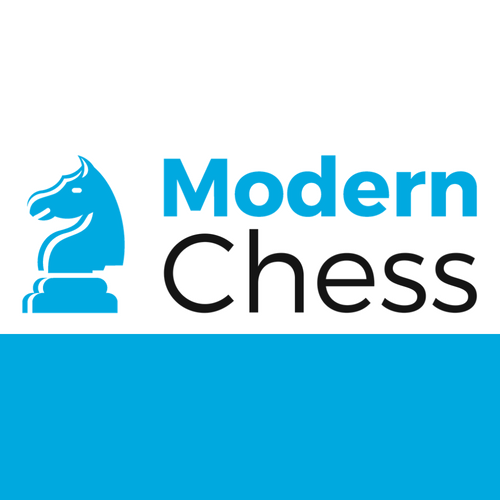
Modern-chess
Everyone thinks that we’re competitor websites, but it’s not true. We don’t compete with anyone. Especially with companies like Modern-Chess, which is created by chess experts and has kept very high quality for many years. If you’re 2,200+ player, and you have resources to invest in your chess, this is a website you should check out. They have lots of great material created by experts.
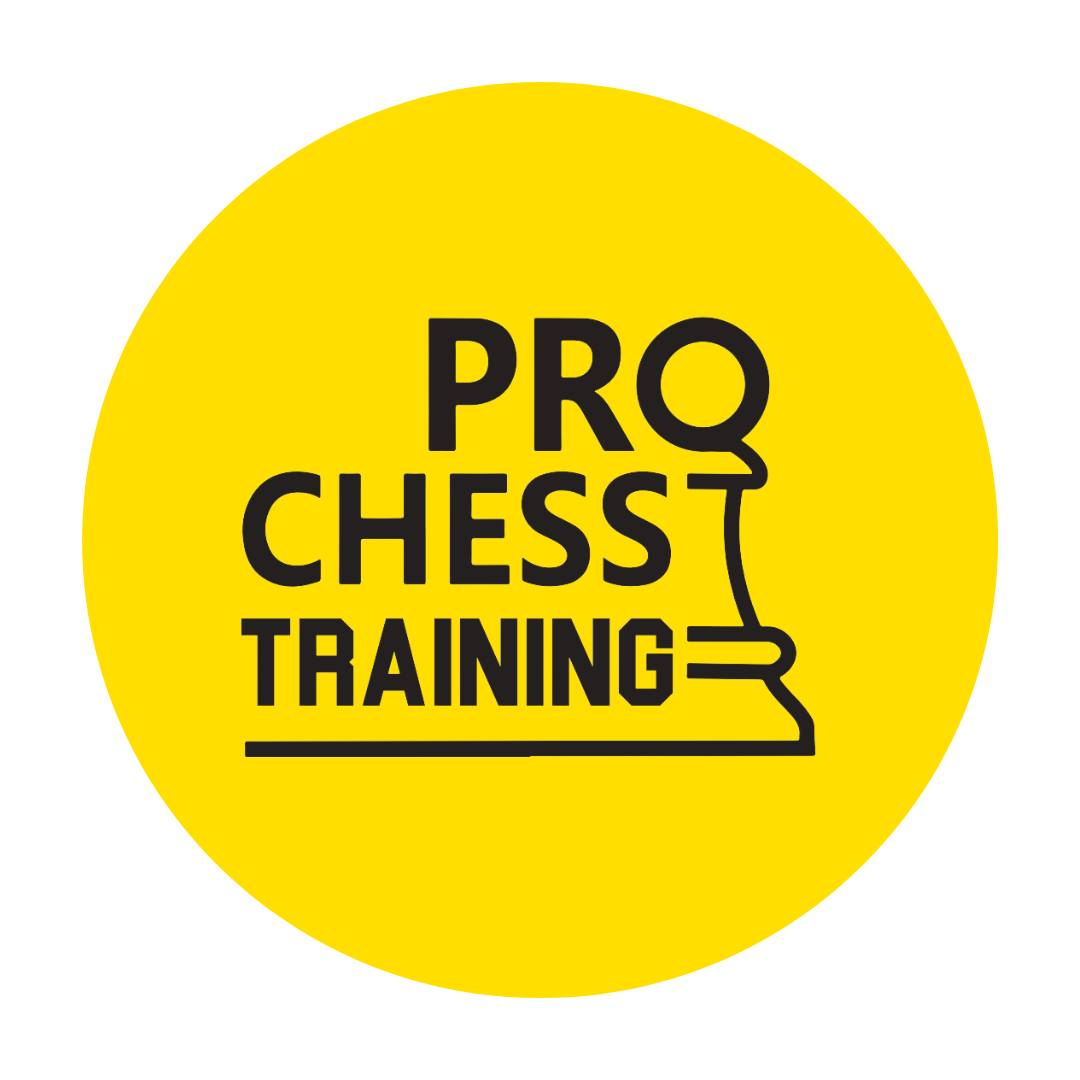
Pro Chess Training
Another website that we should supposedly be competing with, but we’re not 🙂 If you have resources to invest in your chess, and you like group trainings, this is a website you should check out. Just seeing the founding team of Grandamsters Ramesh, Ganguly, Pachatanathan, and their Grandmaster coaches like Shirov, Nisipeanu, Eljanov, Kasimdzanov, Ponomariov, Harikrishna and others, speaks for itself 🙂
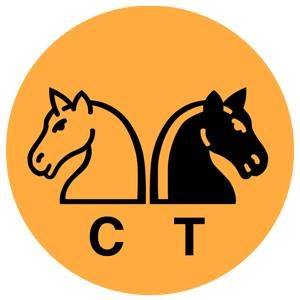
Chess Tempo

Opening Tree
You can use this tool to prepare against an opponent. Just put in their lichess or chess.com id, and it will give you an idea of what the opponent plays, how frequently they play certain moves and other valuable insights. In the same way, you can also plug in your games to get insights about your opening choices and build your repertoire.

Aimchess
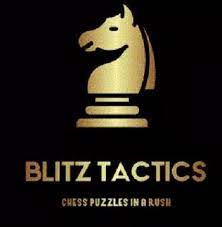
Blitz Tactics
This is a great website to warm up your tactics and stay sharp. Also, you can practice specific endgame positions here. For example, imagine you want to train how to win in Lucena position, or how to draw in Philidor position – you can do that here.

Next Level Chess

Modern-chess
Everyone thinks that we’re competitor websites, but it’s not true. We don’t compete with anyone. Especially with companies like Modern-Chess, which is created by chess experts and has kept very high quality for many years. If you’re 2,200+ player, and you have resources to invest in your chess, this is a website you should check out. They have lots of great material created by experts.

Pro Chess Training
Another website that we should supposedly be competing with, but we’re not 🙂 If you have resources to invest in your chess, and you like group trainings, this is a website you should check out. Just seeing the founding team of Grandamsters Ramesh, Ganguly, Pachatanathan, and their Grandmaster coaches like Shirov, Nisipeanu, Eljanov, Kasimdzanov, Ponomariov, Harikrishna and others, speaks for itself 🙂

Chess Tempo

Opening Tree
You can use this tool to prepare against an opponent. Just put in their lichess or chess.com id, and it will give you an idea of what the opponent plays, how frequently they play certain moves and other valuable insights. In the same way, you can also plug in your games to get insights about your opening choices and build your repertoire.

Aimchess

Blitz Tactics
This is a great website to warm up your tactics and stay sharp. Also, you can practice specific endgame positions here. For example, imagine you want to train how to win in Lucena position, or how to draw in Philidor position – you can do that here.
Software
Softwares can make your chess study so much more organized, structured and efficient. It’s like having a virtual training assistant with whom you can practice tactics, analyze complex positions, study and memorize openings, prepare against almost anyone in the world, and a lot more! Here’s our software recommendation list:
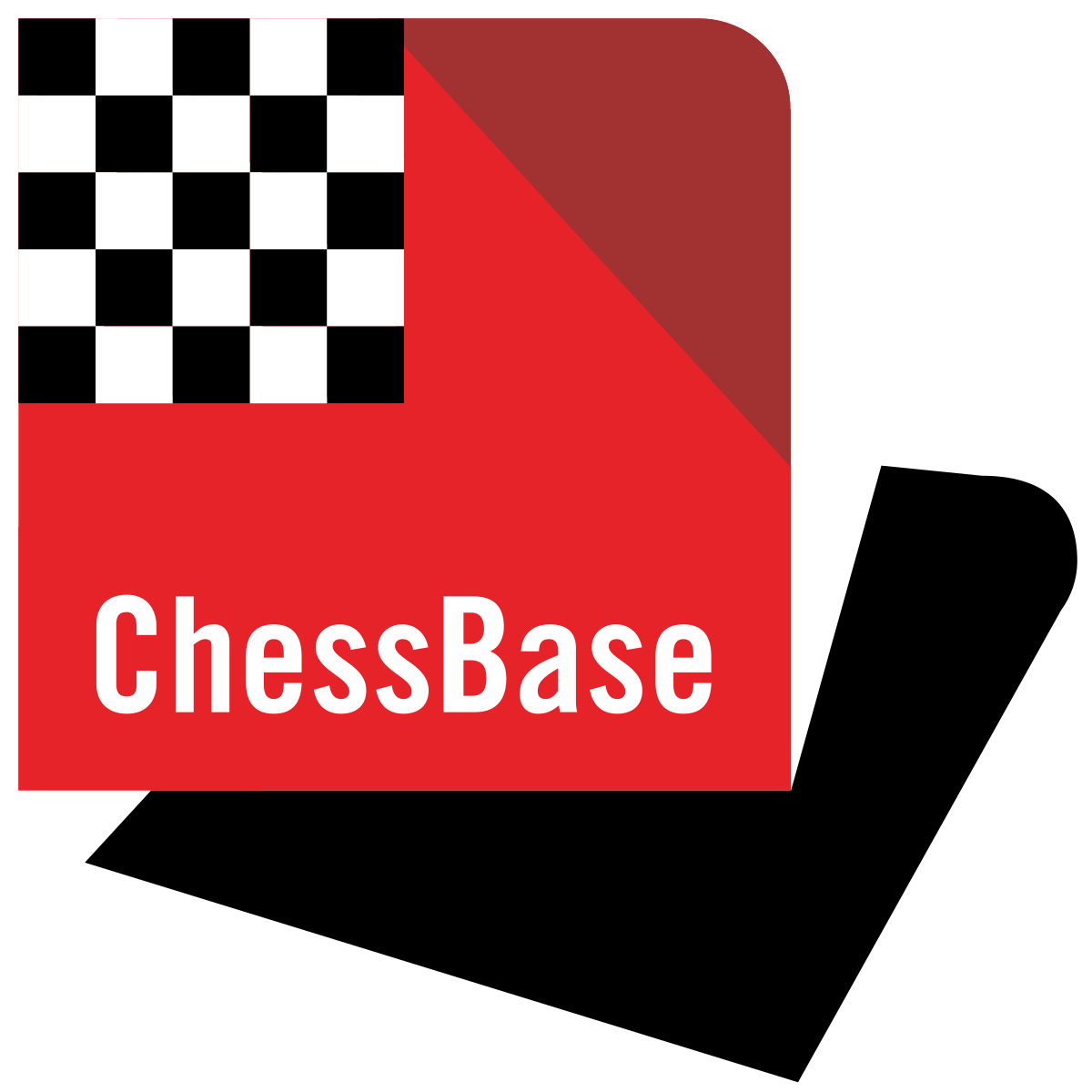
ChessBase
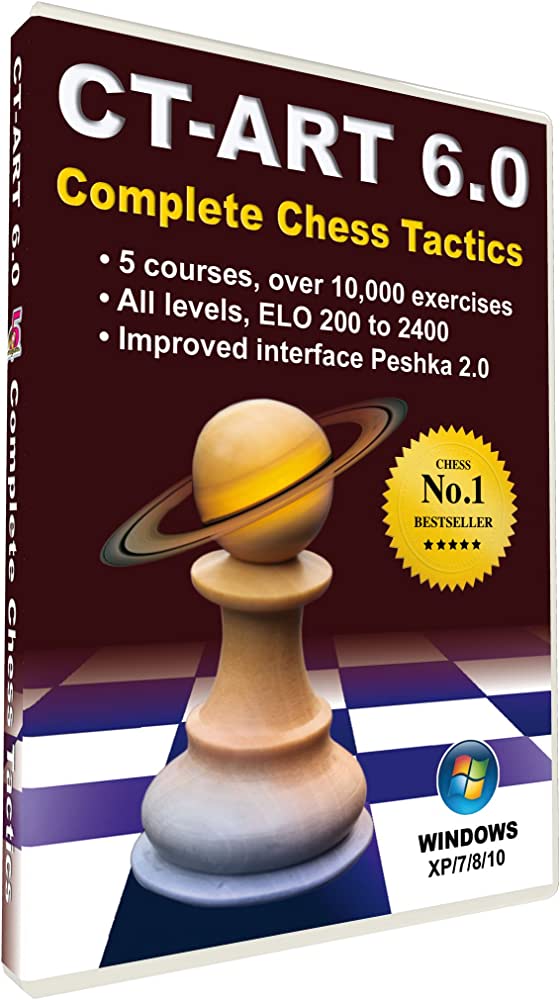
CT-ART 6.0

Chessify

Chessvision
Chessvision is a tool for quickly scanning and analyzing a position. So imagine you’re scrolling through a website and see an interesting game. You can use Chessvision’s browser extension to scan and then analyze the position.

ChessBase

CT-ART 6.0

Chessify

Chessvision
Chessvision is a tool for quickly scanning and analyzing a position. So imagine you’re scrolling through a website and see an interesting game. You can use Chessvision’s browser extension to scan and then analyze the position.
Chess Stores
Here you can find good websites for buying chess sets and other stuff.
.jpg)
The Regency Chess
You can buy high-quality chess sets from the Regency Chess Company. They offer free and fast shipping across the United States, and have a great customer support team that responds promptly to any queries.
You can use the code ChessMood10 at checkout to get a 10% off on any purchase you make here.
Note: We don’t get any commission. We’ve asked the Regency Chess to include it into your discount code.
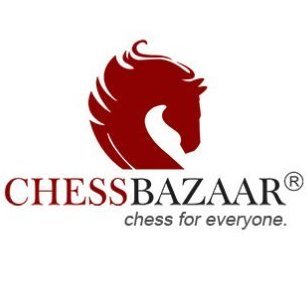
ChessBazaar
ChessBazaar offers a variety of chess sets, from wooden and plastic sets to even metal ones. The also make reproduced versions of chess boards and pieces used in prominent events, including those used in the Olympiad, the World Championship match between Fischer and Spassky, and even where Capablanca played a simul. Apart from chess sets, you can also buy chess clocks, storage bags and other accessories here.
You can use the ChessMood20 code at checkout to get a 20% discount on whatever you purchase from here.
Note: We don’t get any commission. We’ve asked ChessBazaar to include it into your discount code.
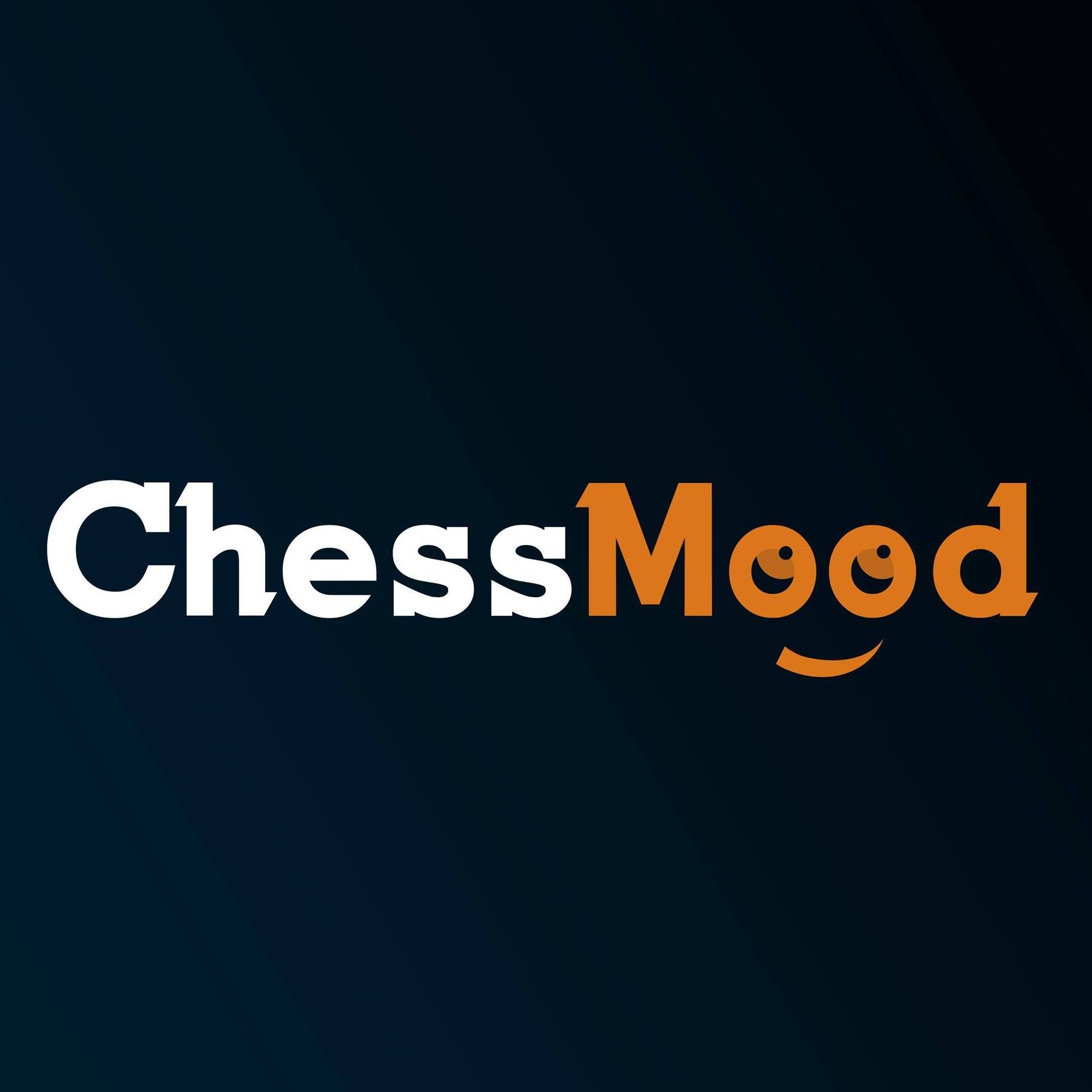
ChessMood Store
.jpg)
The Regency Chess
You can buy high-quality chess sets from the Regency Chess Company. They offer free and fast shipping across the United States, and have a great customer support team that responds promptly to any queries.
You can use the code ChessMood10 at checkout to get a 10% off on any purchase you make here.
Note: We don’t get any commission. We’ve asked the Regency Chess to include it into your discount code.

ChessBazaar
ChessBazaar offers a variety of chess sets, from wooden and plastic sets to even metal ones. The also make reproduced versions of chess boards and pieces used in prominent events, including those used in the Olympiad, the World Championship match between Fischer and Spassky, and even where Capablanca played a simul. Apart from chess sets, you can also buy chess clocks, storage bags and other accessories here.
You can use the ChessMood20 code at checkout to get a 20% discount on whatever you purchase from here.
Note: We don’t get any commission. We’ve asked ChessBazaar to include it into your discount code.


